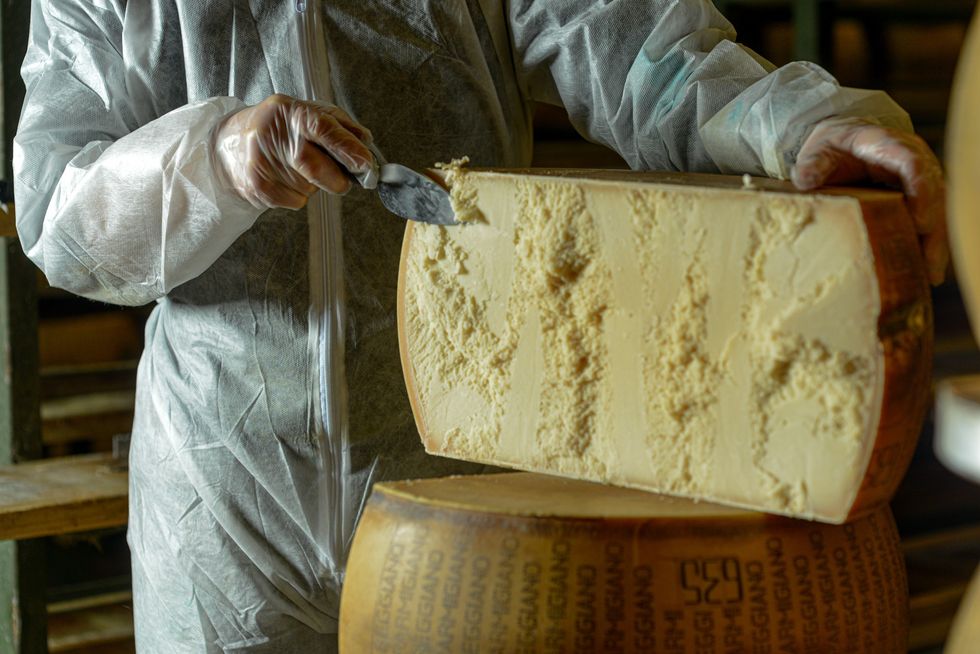A 'ready to eat' item, possibly of a dairy origin, likely caused the E. coli outbreak, a top scientist says
Getty Images
It comes after the UK Health Security Agency (UKHSA) linked the outbreak to a nationally distributed food item or multiple food items
Don't Miss
Most Read
Trending on GB News
The likely food item at the heart of the E. coli outbreak that's resulted in at least 37 people being admitted to hospital is a "ready to eat" item, possibly of a dairy origin, a leading scientist says.
The latest development comes as the UK Health Security Agency (UKHSA) in conjunction with public health agencies in Scotland, Northern Ireland and Wales, the Food Standards Agency (FSA) and Food Standards Scotland, scramble to determine the cause of people’s illness.
Whole genome sequencing of samples indicates most of the 113 cases reported across the UK between May 25 and June 24 are part of a single outbreak, the UKHSA said.
All the cases recorded in the outbreak involve Shiga toxin-producing E. coli O145 (Stec), with 81 cases in England, 18 in Wales, 13 in Scotland and one person in Northern Ireland who believes they fell ill in England.

Scientists note that the UK has previously had outbreaks associated with dairy products
GettyNow, a top scientist is claiming that the cause of E. coli outbreak is "very likely to be a ready-to-eat product possibly with dairy origin".
E. coli are a diverse group of bacteria that are normally harmless and live in the intestines of humans and animals.
However, some strains produce toxins that can make people very ill, such as Stec.
Stec is usually killed off during the cooking process so this narrows it down, the scientist says.
Hugh Pennington, Pennington, emeritus professor of bacteriology at the University of Aberdeen, told Mail on Sunday: "We’ve had Stec outbreaks with food that is going to be cooked, the traditional kinds were meat products, mince and burgers and so on, and cooking kills the bug stone dead.
"You’d have to expect if it was a food that’s going to be made safe by cooking, all the people who’ve fallen ill haven’t been cooking their food properly."
The scientist says it is "very unlikely" that undercooked meats are to blame.
This would imply that people are contracting Stec from foods that are not going to be cooked before they are consumed, he added.
"We’ve had outbreaks associated with the dairy products, for example."
Indeed, last year GB News reported on a cheese recall that followed an outbreak of E. coli in the UK that left one person dead.
LATEST DEVELOPMENTS

Ice cream is also a possible cause, scientist says
GETTY IMAGESThe Food Standards Agency (FSA) announced a precautionary recall of four products from cheesemaker Mrs Kirkham’s Lancashire Cheese on Christmas Eve because of possible E. coli contamination.
"Cheese is a classic, ice cream, we’ve had ice cream before. There’s a whole range, any dairy products, that are being processed," Professor Pennington added.
The UKHSA said there is currently no evidence linking the outbreak to open farms, drinking water or swimming in contaminated sea, lakes or rivers.
Trish Mannes, incident director at UKHSA, said: “If you have diarrhoea and vomiting, you can take steps to avoid passing it on to family and friends.
“NHS.uk has information on what to do if you have symptoms and when to seek medical advice.
“Washing your hands with soap and warm water and using disinfectants to clean surfaces will help stop infections from spreading.
“If you are unwell with diarrhoea and vomiting, you should not prepare food for others while unwell and avoid visiting people in hospitals or care homes to avoid passing on the infection in these settings.
“Do not return to work, school or nursery until 48 hours after your symptoms have stopped.”








